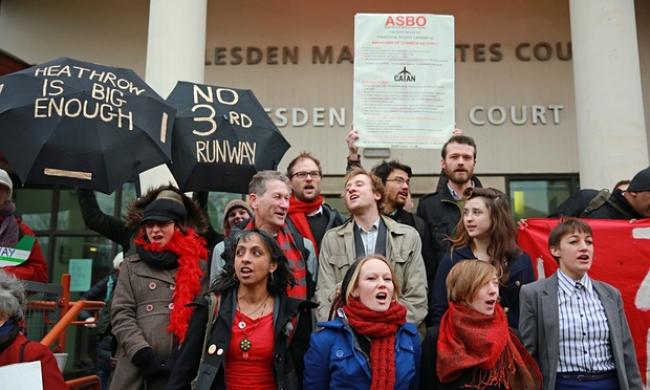Articles Menu

They have been reviled as vandals, hooligans and lunatics. But to me, these people are heroes. The 13 women and men on trial this week for cutting through the perimeter fence around Heathrow airport and chaining themselves together on a runway were excoriated by police, passengers and politicians. (One of the defendants in the case is a member of the cooperative society that rents my house.) If convicted, they all face a possible prison sentence. But there are two trials here: the legal proceedings in a local magistrates court, and a test of something much bigger.
Aviation enjoys some astonishing exemptions from the civilising rules that constrain other sectors. Other industries must limit the noise they make; but aircraft, thanks to an obscure clause in the 1949 Civil Aviation Act, are exempt. Other industries pay duty on the fuel they use; but even when air passenger duty is subtracted, aviation’s various tax holidays amount to a subsidy of some £7bn a year, forgone by the Treasury. Some industries must limit the air pollution they produce; but while in principle airports are subject to pollution laws, in practice they have been allowed to breach them routinely for years. (In this case the legal immunity also seems to extend to motor traffic.)
Most importantly, international flights are free from all climate constraints. They are covered by neither domestic legislation nor international agreements. There are no targets, no timetables, no limits. Airlines operate in a legislative vacuum, a transnational, extralegal limbo, accountable nowhere and to no one. As a result they threaten everything that was agreed at December’s climate talks in Paris.